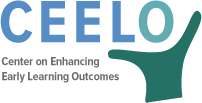This talk presents evidence to drive Early High Start/Head Start through third grade collaborations and describes opportunities build skills in data-driven leadership. Tom Schultz gave this presentation to the 2nd National Birth to Five Leadership Institute.
Promoting a Culture of Inclusion for Birth-Third Grade Systems Within State and Local Education Agencies
This presentation describes the current state of an institutional culture of inclusion, identifies real and perceived barriers to achieving and institutional culture of inclusion, develops potential strategies to infuse a viral culture of inclusion, and suggests action steps and recommendations for technical assistance providers to state education agencies, local education agencies, and programs. Jim Squires gave this presentation at the 2013 National Inclusion Institute.
Issues and Actions: Achieving Full Inclusion From Birth – Third Grade
This presentation describes multiple issues impacting birth through third grade inclusion, provides clarity on alignment, continuity, and transitions as they pertain to inclusion, and suggests actions for influencing policy and practice for birth through third grade inclusive services. It concludes with resources available from national technical assistance centers and institutes. Jim Squires presented with Sharon Ritchie (UNC – Chapel Hill) and Beth Rouse (University of Kentucky) at the 2013 National Inclusion Institute.
Instructional Practices that Support Literacy Achievement of Students Living in Poverty
This presentation reviews research on the impact of poverty and identifies a dearth of literacy resources on the reading achievement of children in low-income households. The presentation highlights intentional instructional practices that focus on vocabulary development, integration of literacy instruction with science and math, and greater access to print and literacy-rich resources can help children as ways to close the achievement gap in literacy and other content domains. CEELO supported the participation of Susan Neuman (University of Michigan) as a presenter for this session at the Wisconsin Literacy (un) Conference.
Using Data to Drive Literacy Instruction K-3
This presentation provides an overview of the formative assessment cycle, demonstrates the role of standards in assessment, interprets examples of data to inform instruction, and highlights the connection between assessment and instruction. Shannon Riley-Ayers presented this material at the Wisconsin “UnConference” of Early Literacy.
If Kindergarten Entry Assessments are the Answer, What is the Question?
This presentation explains why KEAs make a unique contribution to comprehensive early childhood assessment system, highlights state KEA approaches (adopt, adapt, develop), and identifies key issues for states. CEELO’s Tom Schultz gave this presentation to the Arizona Early Literacy Advisory Board.
Overview of State Kindergarten Readiness Definitions
This presentation explores current needs and issues and poses critical questions in definition kindergarten readiness. It concludes with resources for further information.Lori Connors-Tadros gave this presentation to the Arkansas Kindergarten readiness Indicators Committee.
Ohio 3rd Grade Reading Guarantee Early Childhood Work Group
This presentation focuses on third grade reading success, highlighting evidence of disparities and gaps between low- and high-risk students and providing evidence on why grade level reading is important. It highlights four strategies to improve third grade reading success: convince parents and early childhood teachers that there’s an urgent problem, invest in high-quality early childhood programs, reduce chronic absenteeism, and combat summer learning loss. Tom Schultz gave this presentation to the Ohio 3rd Grade Reading Guarantee Early Childhood Work Group.
